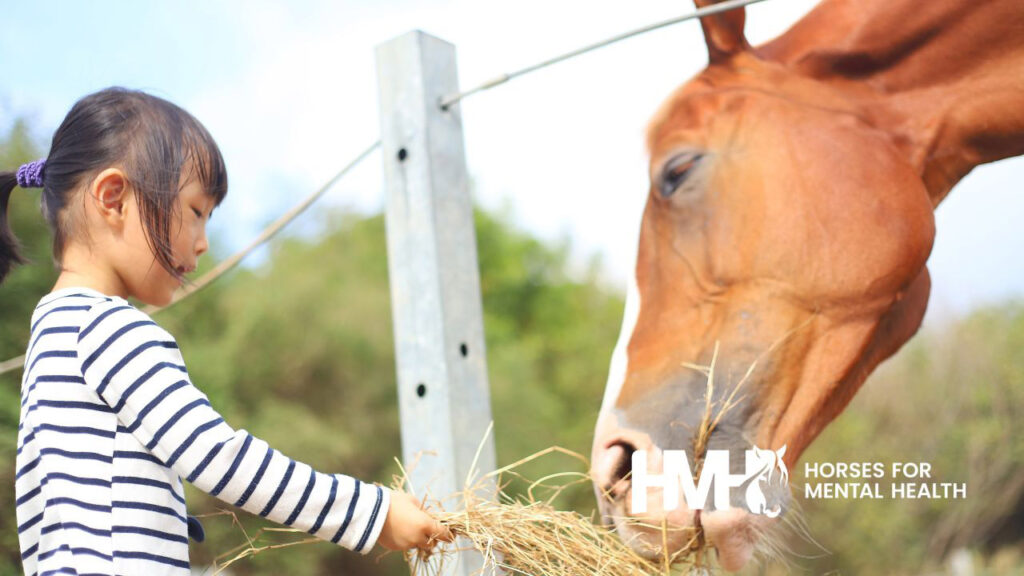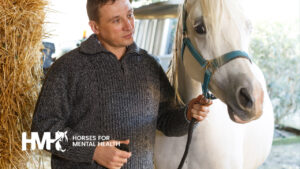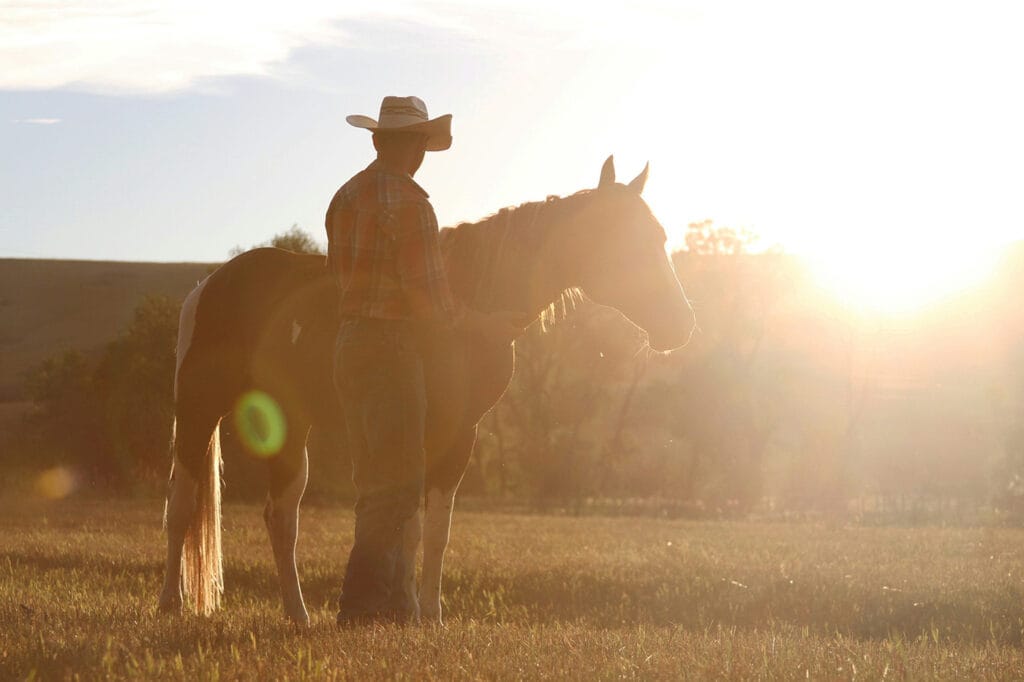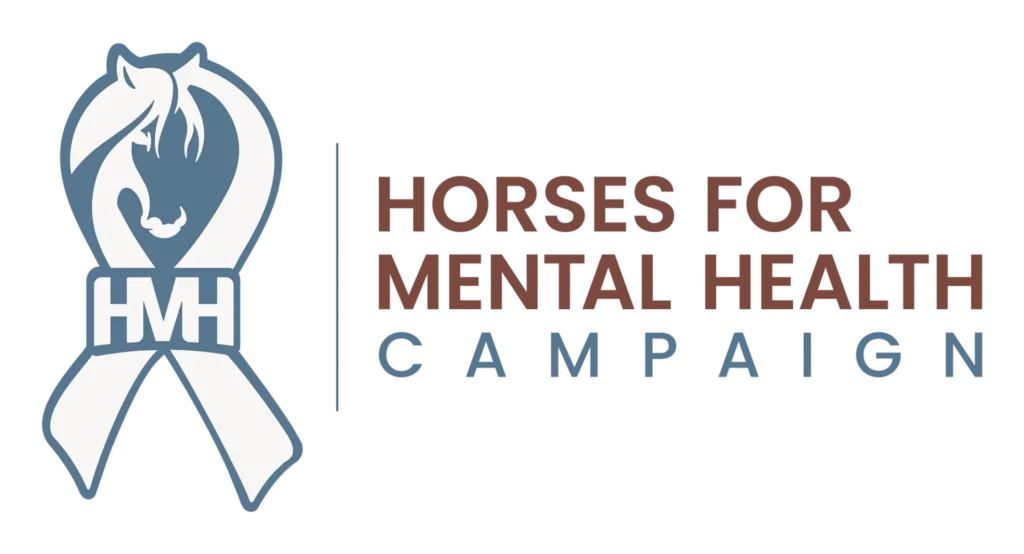Dennis Quaid Advocates for HMH during Mental Illness Awareness Week

We’re thrilled to announce that Emmy®️ Award winner and two-time Golden Globe®️ nominee, @dennisquaid, who recently portrayed Ronald Reagan in the 2024 film “Reagan” is joining Horses for Mental Health for #MentalIllnessAwarenessWeek.
Having experienced the bond with horses firsthand, Quaid shares how powerful this connection can be. Now, he’s lending his voice to help raise awareness about the key role horses play in mental health healing.
“Horses are imperative to helping those heal from all the pressures we face, especially when it comes to mental health. I’m proud to support Horses For Mental Health in their mission to support everyone, especially U.S. service men and women,” says Quaid.
We’re grateful for his advocacy during Mental Illness Awareness Week to highlight the power of the horse-human connection to revolutionize mental well-being 🐴💙
Embracing Life Changes with the Healing Power of Horses
As we continue Mental Illness Awareness Week, it’s crucial to recognize how life transitions impact mental health, especially for those living with mental illness. Major changes—whether welcomed or unexpected—can bring a range of emotions and challenges. Just as our bodies can feel unwell during abrupt changes, our minds can also feel a toll. Understanding common life changes, their emotional toll, and how psychotherapy involving horses can provide support is essential for navigating these new seasons of life when you or someone you love is experiencing mental illness.
Seasons of Transition
Life is full of transitions, and each stage brings its challenges and emotional responses. Here are some common life changes and the potential mental health implications:
- Transitioning from College to Adulthood: Leaving the familiar environment of college can create feelings of uncertainty and anxiety about the future. Young adults may experience pressure to find employment, establish relationships, and define their identities. This period often heightens stress and anxiety disorders. Seeking support from peers and professionals can be crucial during this transition.
- From Single to Married: Marriage is often celebrated as a joyous occasion, but it can also come with significant adjustments. Individuals may struggle with new responsibilities, changes in personal space, and the need for effective communication. For some, this transition may lead to increased anxiety or depression, particularly if expectations within the relationship are unmet.
- Becoming Empty Nesters: The transition from raising children to an empty nest can be profound. Parents may experience feelings of loss, loneliness, and sadness as their children move out. This phase can evoke grief over the “end” of an era, potentially triggering depressive symptoms. Support groups and therapy can help parents process these emotions and redefine their identity beyond parenthood.
- Welcoming a New Child: The arrival of a new child can bring immense joy but also lead to postpartum depression (PPD) for new parents. Hormonal changes, coupled with the stress of caring for a newborn, can cause feelings of sadness and overwhelm. It’s crucial for new parents to seek help if they experience persistent feelings of hopelessness.
- Grief: Grief is a natural response to loss and can significantly impact mental health. Whether it’s the death of a loved one or a significant life change, the process of grieving can lead to sadness and anxiety.
- New Job: Transitioning to a new job can be both exciting and stressful. The uncertainty of a new environment and the pressure to perform can increase anxiety. It’s important to acknowledge these feelings and seek support during this adjustment.
The Influence of the Seasons on Mental Health
While fall and winter are beautiful seasons, they can also bring about challenging emotions for those with mental illness. Research shows that the literal changes of the seasons can significantly impact our mental health. Seasonal Affective Disorder (SAD) often surfaces during the fall and winter months when daylight is limited. This type of depression can intensify feelings of sadness, especially during significant life transitions. Thankfully, there are tools and even vitamins that can help combat this:
- Vitamin D: Supplementing with 600-800 IU daily can improve mood*, according to the NIH, especially in winter, as low levels are linked to depression.(NIH)
- Omega-3 Fatty Acids: Studies have shown that omega-3s, found in fish oil, can stabilize mood and reduce depressive symptoms*. (NIH)
- Exercise: Regular physical activity releases endorphins, enhancing mood and reducing anxiety.
- Mindfulness and Meditation: These practices help manage stress and improve emotional regulation, leading to reduced depressive symptoms.
- Connect with Nature: Spending time outdoors can have a positive impact on mental health. Natural light exposure can help regulate mood, improve feelings of well-being, and even provide a natural dose of vitamin D. Activities such as walking, gardening, spending time with horses, or simply sitting in a park can offer mental clarity and relief from the pressures of daily life.
- Cognitive Behavioral Therapy (CBT): This structured therapy effectively treats SAD by changing negative thought patterns.
- Psychotherapy Involving Horses: Interacting with horses promotes emotional healing and personal growth, providing a calming influence and fostering social connections, which can be especially beneficial for those experiencing SAD.
A New Chapter Together
Like humans, older horses reach an inflection point and have to transition into new seasons of their lives. Whether they are retiring from a competitive career, transitioning from other locations, or roles, or have other health needs, horses in transition can be rehabilitated and transitioned to be incorporated into mental health programs and services supporting individuals on their healing journeys alongside mental health professionals.
- Renewed Purpose: With years of experience, these gentle giants guide people through emotional healing. Their transition mirrors human experiences, illustrating that change can lead to renewed purpose.
- Emotional Healing: Therapy involving horses creates a safe, non-judgmental space for individuals to explore their feelings. Under the guidance of mental health professionals, activities involving relationship-development with the horses foster trust and self-esteem, benefiting those dealing with anxiety, depression, or trauma during significant life transitions.
- Connection with Nature: Working with horses also reconnects individuals with nature, alleviating feelings of isolation and fostering a sense of belonging. This therapeutic journey harnesses the bond between humans and horses, promoting emotional resilience and deeper self-understanding.
A Story of Transition
A young girl fled her war-torn country with her family at the age of 11, seeking refuge from the violence and chaos that had surrounded her early life. Although they escaped the physical dangers, she carried deep emotional scars. Her anger soon became overwhelming, leading to outbursts at home, trouble at school, and even police involvement.
Counselors recommended residential treatment, but her parents instead found an outpatient mental health program that involved horses. At first, she resisted the therapy, feeling disconnected and resentful. Over time, however, being in the presence of the horses, who expected nothing from her, began to help. She started participating, feeding, and brushing the horses and found herself drawn to their calm presence.
Through this program, she learned how to manage her emotions, develop trust, and rebuild her relationships with her family. Now, she’s studying to become a veterinary technician, crediting the program with helping her rediscover a sense of peace and safety after years of turmoil.
Thanks to our partners at Equibliss – HEART Space Fund, led by Dr. Ioana Marcus, for this powerful story of healing. They provide psychotherapy involving horses to immigrant families and youth in transition, offering a unique and transformative approach to emotional recovery for those facing overwhelming challenges.
Watch this incredible story now.
As we embrace Mental Illness Awareness Week, let’s acknowledge the profound impact that life transitions can have on mental health. Psychotherapy incorporating horses offers a powerful way to navigate these changes, providing emotional support and fostering resilience. Whether it’s moving from college to adulthood, adjusting to an empty nest, or welcoming a new child, recognizing and addressing our mental health needs is crucial for thriving during life’s seasons.










